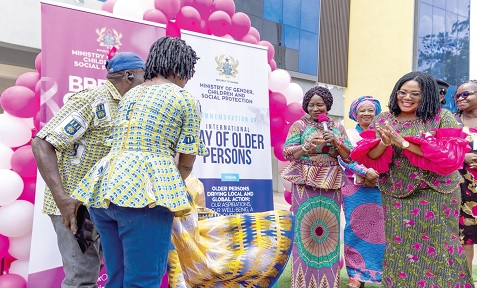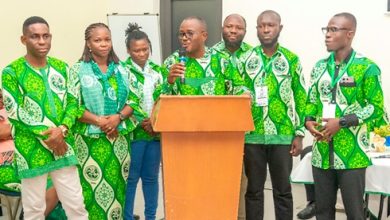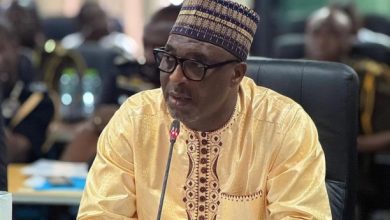
The Vice-President, Professor Naana Jane Opoku-Agyemang, has advised Ghanaians, especially women, to prioritise breast cancer screening for early detection and treatment to safeguard their health.
She stressed that early detection saved lives, reminding women that prioritising their well-being was critical to sustaining families and communities.
Speaking at the launch of the Breast Cancer Awareness Month 2025 and the commemoration of International Day of Older Persons, she called for greater respect, care and protection for the elderly, describing them as pillars whose wisdom and sacrifices held society together.
The Vice-President explained that ageing was a process and the role of older people in families and communities must never be overlooked.
“Don’t think anyone is just born for this role; it is a process.
They play their roles, and the responsibility rests on their shoulders. What we can do, at the very least, is to show them respect, support and understanding.
When we approach them with the right respect and humility, they will always be there for us,” she said.
Event
The launch was organised by the Ministry of Gender, Children and Social Protection (MoGSCP) in Accra yesterday (October 1, 2025). The event also doubled as the Vice-President’s working visit to the ministry.
The visit was part of the Vice-President’s efforts to support the various ministries, departments and agencies.
The Vice-President was accompanied by the Chief of Staff at her office, Alex Percival Segbefia, the Policy Advisor, Political Affairs, Dr Samuel Ofosu-Ampofo, and other high-ranking officials of the Office of the Vice-President.
The sector Minister, Dr Agnes Naa Momo Lartey, received the delegation. Also present was the Chief Director of the ministry, Dr Afisah Zakariah, directors and heads of agencies and departments under the ministry.
The Breast Cancer Awareness Month 2025 is on the theme: “Catch it early; treat it early; Survive it”, while the International Day of Older Persons was on the theme: “Older persons driving local and global action: our aspirations, our well-being, and our right”.
Support
Prof. Opoku-Agyemang assured the ministry of the government’s support, pledging a stronger collaboration to promote inclusivity, protect the vulnerable and ensure sustainable national development.
She commended the staff for their dedication despite the enormous responsibilities they shouldered.
The Vice-President emphasised that the government’s purpose was to listen, support and ensure that the work of the ministry yielded meaningful results for all Ghanaians.
The ministry’s mandate covers children, women, men, the elderly and persons with disabilities(PwDs).
“For a long time, people equated gender only with women, forgetting the men. But gender involves everyone — boys and girls, the vulnerable, women and men, and even those who are differently abled.
They are all part of this,” she added.
The Vice-President further urged ministries and agencies to integrate gender considerations into their planning, to ease the burden on the ministry alone.
“We want to see other ministries becoming more sensitive to gender issues and mainstreaming them into their planning. This will reduce the pressure on one ministry and spread it across all sectors,” she said.
Appreciation
The sector minister thanked the Vice-President for her continuous support and gave an assurance that the ministry would remain committed to serving and safeguarding women, children,
PwDs, and all vulnerable groups in the country.
Dr Lartey highlighted the landmark approvals within the past eight months, including the National Gender Policy (2025–2034), the Early Childhood Care and Development Policy (2025–2034), the Domestic Violence Policy (2025–2035) and the passage of the Social Protection Act.
She said plans were also underway to construct new shelters for vulnerable groups, saying, “We plan to construct 16 shelters nationwide, at least, five of them will be designated for the aged”.
As October marks Breast Cancer Awareness Month, Dr Lartey acknowledged concerns that the country has only two facilities dedicated to treating cancer patients.
She explained that such matters fell under the Ministry of Health, but pledged that her ministry would collaborate with it and the National Health Insurance Scheme to support policies that best served vulnerable groups.



